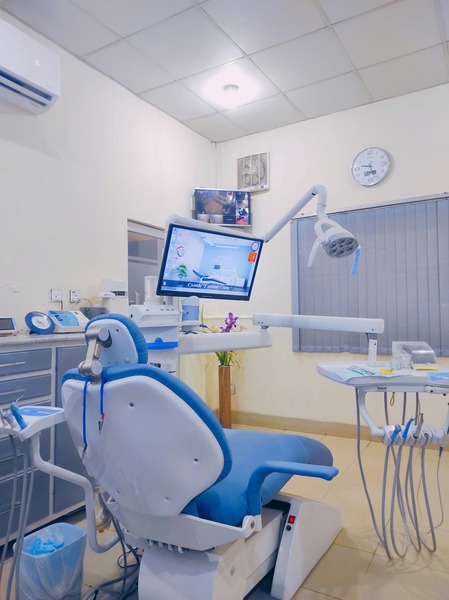Visiting the dentist for the first time—or the first time in a while—can be a source of anxiety for many. However, understanding what to expect can ease those nerves and help you prepare for a productive and stress-free appointment.
Before Your Appointment
Before you step into the dental office, there’s a bit of preparation you can do to ensure a smooth visit.
-
Insurance and Forms: Make sure to have your dental insurance information handy and expect to fill out some forms regarding your health history and consent.
-
Arrive Early: Arriving a bit early will allow you time to complete any necessary paperwork without feeling rushed.
-
Prepare Questions: Have a list of any questions or concerns you may have for your dentist.
On Arrival
As you enter the clinic, a friendly front-office team should welcome you and help with preliminary steps.
-
Greetings: Be prepared to be greeted and to present identification and insurance documents.
-
Comfort: Modern dental offices often have comfortable waiting areas equipped with reading materials or televisions to ease your wait.
-
Communication: The staff will instruct you on what to expect during your visit and answer any preliminary questions.
A Warm Welcome and Consultation
Your dental team aims to make you feel at ease the moment the examination begins. A typical first visit often involves a thorough dental exam.
-
Introduction: You’ll be introduced to your dental hygienist and dentist, who will likely ask about your dental care routine and medical history.
-
Examination: A comprehensive oral health check will follow, including an inspection of your teeth, gums, and mouth for any signs of decay or gum disease.
-
Digital Imaging: To get a full picture of your oral health, expect digital X-rays, which are crucial for uncovering issues not visible to the naked eye.
Understanding Professional Teeth Cleaning
Professional teeth cleaning is often part of a routine dental check-up. The process removes plaque and tartar build-up that regular brushing and flossing can’t tackle.
-
Scaling: Your hygienist uses specialized tools to scrape away deposits from the teeth’ surfaces gently.
-
Polishing: Following scaling, a gritty toothpaste and a high-powered brush are used to polish your teeth.
-
Flossing: The hygienist will expertly floss your teeth, potentially reaching spots you might miss during your dental care routine at home.
The Importance of Routine Dental Check-ups
Regular dental visits are critical for maintaining oral health and preventing issues such as tooth decay and gum disease.
-
Early Detection: Routine exams are key in spotting early signs of oral health issues before they become severe.
-
Professional Advice: Your dentist will also provide personalized dental hygiene tips and oral care practices to follow at home.
-
Continuity of Care: Ongoing visits allow the dentist to keep track of any changes or developments in your dental health.
In Between Visits
It’s important to maintain a dental care routine that complements your professional cleanings.
-
Effective Brushing: Brush twice a day using fluoride toothpaste to fight tooth decay.
-
Flossing: Daily flossing removes plaque from between teeth and under the gum line.
-
Diet: Eating a balanced diet and limiting sugary snacks can help prevent cavities.
Discussing Your Dental Health Plan
After examining your teeth, your dentist will discuss any necessary dental services or treatments.
-
Treatment Plan: If issues are identified, your dentist will propose a treatment plan tailored to your needs, including options like teeth whitening services or dental surgery services if required.
-
Preventive Measures: You may receive recommendations for preventive dentistry, like sealants or fluoride treatments to fortify your teeth.
-
Follow-up: Setting up future appointments for dental exams and cleaning or specific treatments helps ensure you stay on top of your oral health.
About Visiting the Dentist
Visits to the dentist aren’t just for when you have a toothache or need a routine cleaning.
Sometimes, you may encounter a scenario requiring urgent dental care, such as a severe toothache, broken tooth, or an injury to your gums. In these instances, it’s crucial to see a dentist as soon as possible to prevent further damage and alleviate pain.
Exploring Types of Dental Services
When discussing treatment options, your dentist might suggest a variety of services.
For example, if you need a tooth removed, your dentist will go through tooth extractions explained at Wheatland Saskatoon style clinics, detailing the procedure, recovery, and aftercare.
Caring for Your Teeth at Home
Between dental visits, caring for your teeth is vital.
For those facing more extensive procedures, receiving insights into root canals and endodontics can be beneficial in understanding what to expect and how to care for your teeth post-treatment.
Tooth-Friendly Tips for Every Day
Maintaining proper oral care practices daily is the cornerstone of good dental health. Besides daily brushing and flossing, consider these tips:
-
Hydration: Drinking water helps clear debris from your teeth and supports saliva production, which naturally combats bacteria.
-
Regular Check-ups: Schedule dental exams twice a year or as recommended by your dentist to keep on top of your oral health.
-
Lifestyle: Avoiding tobacco and limiting staining beverages like coffee can prevent discoloration and oral diseases.
Financial Considerations
Your oral health is an investment, and it’s vital to understand the financial aspects, such as dental insurance and the cost of treatments.
-
Dental Insurance: Review what is covered under your plan and discuss any concerns with your dentist’s office—they can help you understand and maximize your benefits.
-
Payment Options: Many offices offer payment plans or financing options to make dental healthcare more accessible and affordable.
-
Priority Setting: Some treatments can be urgent. Prioritize procedures to address the most pressing issues first.
Wrapping Up
Seeing the dentist should be a regular part of your health care routine. By knowing what to expect, you can approach your dental visits with confidence. Remember, taking care of your teeth is a daily responsibility, and your dentist is a partner in maintaining your oral health for a lifetime of smiles.



